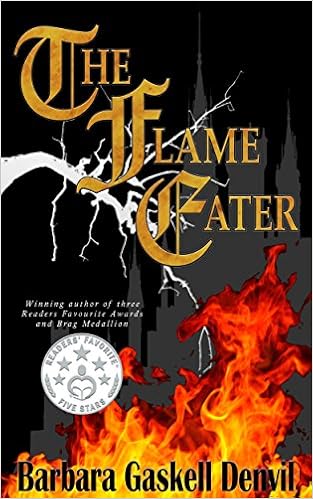Today's guest is Keith R. Baker, author of the sensational Longshot series, who achieved an impressive bestseller rank in the categories of Irish history and the American Civil War without the help of a big publisher. The hero of his series, Rob Finn, is an Irish Famine refuge with an remarkable marksmanship talent that makes him a very coveted man in a very precarious time.
MJN: The Potato Famine was a launching point for many Irish
immigrants. The same tragedy that forced them to seek asylum in another country
also opened up new opportunities for the select few who survived. It's very
tempting to romanticize the Irish-American success story. What about the untold
stories of failure? Was your protagonist's story typical or rather an exception
to the rule?
KB: As much as I try to remain true to the facts that I
have uncovered during my decades of genealogical research, the greatest truth
that comes forth in response to your question is that I often don't have
sufficient detail to complete a life story to its ending, so some of it is
imagined of necessity. And, yes, the temptation to romanticize it always
lurks at the keyboard when I write. After all, I'd like to sell scads and
scads of books, and the highly romanticized works of other authors seem to do
well with the reading public. Alas for my poor wife and family!
That is not who I am. If anything, I tend to steer to what I perceive as
the more real side of life–that which is laced with some misery, sorrow,
suffering, pain and failure. This is the stuff that the vast majority of
humankind has experienced in the history of our species on this planet.
The true success stories are few when compared to the masses of lives that have
passed through in anonymity, poverty, etc. But that does not mean it is
all sad. Really heartfelt joy comes from those little things in life;
especially in those moments when we love, appreciate, share and/or help other
creatures we find in need. That's my take on the experience called life,
anyway.
MJN: The image of an Irish-American has evolved over the centuries. What kind of social gimmicks would an Irish person in mid-19th century resort to in order to him/herself an air of respectability in a society dominated by the Anglo-Dutch elite?
MJN: The image of an Irish-American has evolved over the centuries. What kind of social gimmicks would an Irish person in mid-19th century resort to in order to him/herself an air of respectability in a society dominated by the Anglo-Dutch elite?
KB: While the characters in the Longshot series don't
use such things, the gimmicks you refer to were and are quite common. The
first of them would be to totally hide all traces of Irish patterns and accents
of speech, followed by dressing in finery beyond the means of the wearer.
Then, since many Irish immigrants were physical laborers without the means of
keeping themselves meticulously clean, they often exuded considerable body
odors. Disguising these was not a matter of social politeness in those days as
everybody had a bit of stink about them. Life itself in those years had a
stench to it that our modern culture in the US has sanitized away. So a person
dousing themselves in some form of (especially cheap) colognes or perfumes or
soaps to mask their natural aromas became known for "putting on
airs". (Most common in low-level political aspirants, labor
organizers, etc. I guess things haven't changed all that much.)
MJN: I am sure you are familiar with the Songs of the Irish Volunteer collection - an anthology of Civil War tunes reflecting the experience of the Irish soldiers who fought on both sides of the conflict. Is there a particular anthology you would recommend for your readers?
MJN: I am sure you are familiar with the Songs of the Irish Volunteer collection - an anthology of Civil War tunes reflecting the experience of the Irish soldiers who fought on both sides of the conflict. Is there a particular anthology you would recommend for your readers?
KB: I rather assume that this link is to David
Kincaid's excellent work: Songs of the Irish Union Soldier
1861-1865, is the one you have in mind. The only thing lacking there, is
that there are as many songs arising from the Irish troops engaged under the
flag of the Confederacy in those same years. The Irish soldier songs on
both sides of the war were often based upon older songs and ballads from
Ireland, and always had similar instrumentation and voicing to the tunes,
melodies, beats, rhythyms and such from the Celtic home origins. Among
the better known Confederate songs that can be attributed to the Irish are Dixie,
The Bonnie Blue Flag, and The Irish Brigade (actually a Union version and a
CSA version of this last one). I have no favorite anthology to recommend,
but there are many CDs available online that have excellent and authentic collections
performed on them. Any that I have listened to work well to evoke the
strong emotions or loneliness, sadness, glory and honor that the warriors of
that war heard while soothing their souls from the fearsome environment
surrounding them. If still available, the sound tracks from the movies, Gods
and Generals and also Gettysburg, contain some wonderful
renditions of the tunes from both sides.
MJN: There is often a certain naivete about highly gifted individuals. Sometimes they can fall prey to an unscrupulous individual with questionable motives. Gifted individuals often find themselves in a place where they cannot tell good from evil.
MJN: There is often a certain naivete about highly gifted individuals. Sometimes they can fall prey to an unscrupulous individual with questionable motives. Gifted individuals often find themselves in a place where they cannot tell good from evil.
KB: Oh dear! So true! To say more might be
a spoiler for Longshot #3 and beyond!
MJN: Let's talk about the
covers in your series. The background remains the same, featuring a hole from a
gunshot, but the foreground image changes subtly.
KB: You know, there's a bit of a story about
that. There always is when interviewing authors, no?
Hahahahahaha! More seriously, Monica Haynes, owner of The Thatchery
is the very gifted and talented designer of those two covers. I had made
(what I now think of as an amatuerish) suggestion regarding using the
bullet-hole theme for the second book, and she turned it into the wonderful
masterpiece that you now see. Again, I won't spoil the third novel by
revealing the title at this point, but I have NO idea what the cover will look
like. Okay ... spoiler alert ... the name Longshot will be part of the
title, and thus part of the cover, on the next book. Or so I think.
Just now. But to be certain, we'd have to ask Monica, and she's not
around here at the moment. In fact, she and I have never met face-to-face.
|
|
MJN: Clearly, your novel is very
popular and very well-received. You would have no problem attracting a big
publisher. Is there a reason you chose the independent route?
KB: Two main reasons apply: First is my unbridled
impatience with such things as committees and bureaucratic processes, (both of
which I find traditional publishers to practice) coupled with my intense
personal dislike of rejection. My second reason being that I don't work
well with others, having never mastered the art of getting along with the other
children. None of these conditions are improved by my being in my seventh
decade, so I could see no other way forward than the Indie route!




